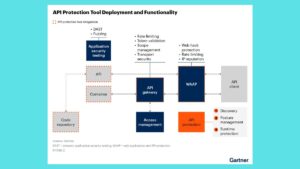HR Tech Takes Center Stage in Addressing Work Challenges

In today’s fast-paced and ever-evolving work environment, addressing employee challenges and enhancing organizational efficiency have become paramount. Human Resources (HR) technology, or HR tech, is increasingly playing a crucial role in navigating these complexities. From managing remote work to improving employee engagement and streamlining HR processes, HR tech is taking center stage in solving some of the most pressing work challenges. Here’s a closer look at how HR tech is transforming the workplace and driving solutions to contemporary work issues.
1. Managing Remote and Hybrid Work
The rise of remote and hybrid work models has introduced new challenges in employee management and collaboration. HR tech solutions are at the forefront of addressing these challenges:
- Virtual Collaboration Tools: Platforms like Microsoft Teams and Slack facilitate communication and collaboration, enabling teams to work seamlessly regardless of their location.
- Remote Work Management Systems: Tools such as Trello and Asana help manage projects and track progress, ensuring that remote employees stay aligned with organizational goals.
- Employee Monitoring and Engagement: Software like Time Doctor and Hubstaff offers insights into productivity and engagement levels, helping managers oversee remote teams effectively.
2. Enhancing Employee Engagement and Experience
Employee engagement is crucial for organizational success, and HR tech is revolutionizing how companies approach this challenge:
- Employee Engagement Platforms: Solutions like Officevibe and Glint provide tools to measure and enhance employee satisfaction through surveys, feedback mechanisms, and analytics.
- Recognition and Rewards Systems: Platforms such as Kudos and Achievers allow organizations to recognize and reward employees, fostering a positive work environment and boosting morale.
- Personalized Employee Experiences: AI-driven platforms offer tailored experiences for employees, from career development resources to customized learning and development opportunities.
3. Streamlining Recruitment and Onboarding
Effective recruitment and onboarding are essential for building a strong workforce. HR tech simplifies and enhances these processes:
- Applicant Tracking Systems (ATS): Tools like Greenhouse and iCIMS streamline the recruitment process by automating job postings, screening resumes, and managing candidate communications.
- AI-Powered Recruitment: AI solutions such as HireVue use algorithms to assess candidate suitability and predict job performance, reducing bias and improving hiring outcomes.
- Automated Onboarding: Platforms like BambooHR and WorkBright automate onboarding tasks, ensuring a smooth transition for new hires and reducing administrative burdens on HR teams.
4. Optimizing Performance Management
Performance management is critical for employee development and organizational growth. HR tech is transforming how performance is tracked and managed:
- Continuous Feedback Tools: Solutions such as 15Five and Lattice enable ongoing feedback between employees and managers, promoting continuous improvement and development.
- Performance Analytics: Advanced analytics platforms offer insights into employee performance trends, helping HR teams identify areas for development and recognize top performers.
- Goal Setting and Tracking: Software like BetterWorks and OKRs allows organizations to set, track, and measure employee goals, aligning individual contributions with organizational objectives.
5. Improving Learning and Development
Continuous learning and development are key to employee growth and organizational adaptability. HR tech is enhancing how training and development are delivered:
- Learning Management Systems (LMS): Platforms such as Cornerstone OnDemand and Udemy Business provide a centralized hub for training resources, enabling employees to access and complete courses at their own pace.
- AI-Driven Learning: AI tools offer personalized learning paths based on employee skills and career goals, ensuring relevant and effective training experiences.
- Skill Development Platforms: Solutions like Pluralsight and LinkedIn Learning offer a wide range of courses and certifications, helping employees acquire new skills and advance their careers.
6. Enhancing HR Efficiency and Compliance
HR tech also plays a vital role in improving HR efficiency and ensuring compliance with regulations:
- HR Automation: Tools like Zenefits and ADP automate routine HR tasks such as payroll processing, benefits administration, and compliance reporting, reducing manual work and minimizing errors.
- Compliance Management: HR tech solutions provide up-to-date compliance information and tools to help organizations adhere to labor laws and regulations, mitigating legal risks.
- Data Analytics and Reporting: Advanced analytics platforms offer insights into HR metrics and trends, enabling data-driven decision-making and strategic planning.
Conclusion
HR tech is increasingly becoming a central player in addressing contemporary work challenges, from managing remote work and enhancing employee engagement to optimizing recruitment and performance management. By leveraging innovative HR technologies, organizations can improve efficiency, foster a positive work environment, and drive better outcomes for their workforce. As the workplace continues to evolve, HR tech will remain at the forefront of solving the complex challenges of modern work.






